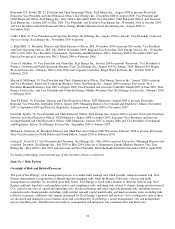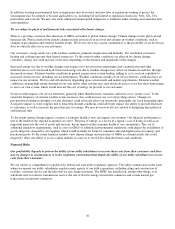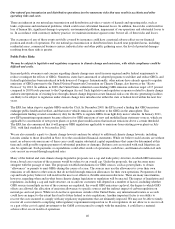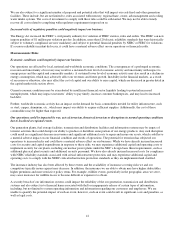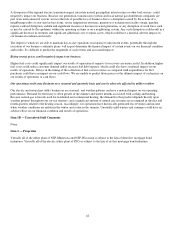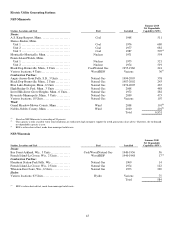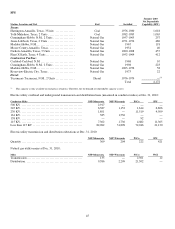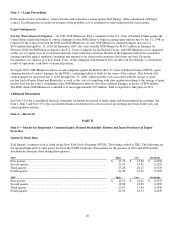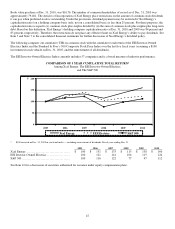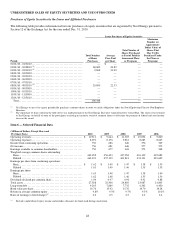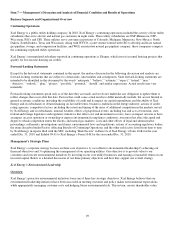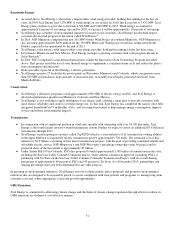Xcel Energy 2010 Annual Report Download - page 52
Download and view the complete annual report
Please find page 52 of the 2010 Xcel Energy annual report below. You can navigate through the pages in the report by either clicking on the pages listed below, or by using the keyword search tool below to find specific information within the annual report.42
A disruption of the regional electric transmission grid, interstate natural gas pipeline infrastructure or other fuel sources, could
negatively impact our business. Because our generation, transmission systems and local natural gas distribution companies are
part of an interconnected system, we face the risk of possible loss of business due to a disruption caused by the actions of a
neighboring utility or an event (severe storm, severe temperature extremes, generator or transmission facility outage, pipeline
rupture, railroad disruption, sudden and significant increase or decrease in wind generation, or any disruption of work force such
as may be caused by flu epidemic) within our operating systems or on a neighboring system. Any such disruption could result in a
significant decrease in revenues and significant additional costs to repair assets, which could have a material adverse impact on
our financial condition and results.
The degree to which we are able to maintain day-to-day operations in response to unforeseen events, potentially through the
execution of our business continuity plans, will in part determine the financial impact of certain events on our financial condition
and results. It’s difficult to predict the magnitude of such events and associated impacts.
Rising energy prices could negatively impact our business.
Higher fuel costs could significantly impact our results of operations if requests for recovery are unsuccessful. In addition, higher
fuel costs could reduce customer demand and/or increase bad debt expense, which could also have a material impact on our
results of operations. Delays in the timing of the collection of fuel cost recoveries as compared with expenditures for fuel
purchases could have an impact on our cash flows. We are unable to predict future prices or the ultimate impact of such prices on
our results of operations or cash flows.
Our operating results may fluctuate on a seasonal and quarterly basis and can be adversely affected by milder weather.
Our electric and natural gas utility businesses are seasonal, and weather patterns can have a material impact on our operating
performance. Demand for electricity is often greater in the summer and winter months associated with cooling and heating.
Because natural gas is heavily used for residential and commercial heating, the demand for this product depends heavily upon
weather patterns throughout our service territory, and a significant amount of natural gas revenues are recognized in the first and
fourth quarters related to the heating season. Accordingly, our operations have historically generated less revenues and income
when weather conditions are milder in the winter and cooler in the summer. Unusually mild winters and summers could have an
adverse effect on our financial condition and results of operations.
Item 1B — Unresolved Staff Comments
None.
Item 2 — Properties
Virtually all of the utility plant of NSP-Minnesota and NSP-Wisconsin is subject to the lien of their first mortgage bond
indentures. Virtually all of the electric utility plant of PSCo is subject to the lien of its first mortgage bond indenture.




